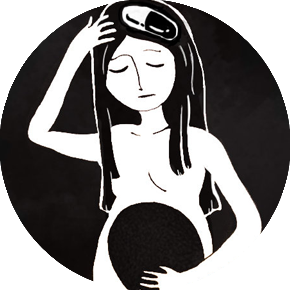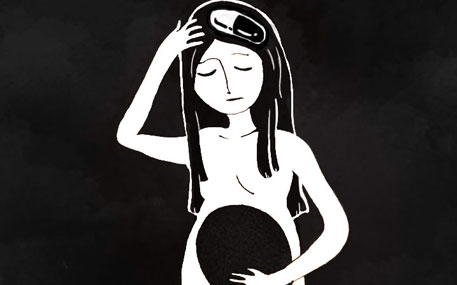Antidepressants during pregnancy: riskier than you thought!
 During pregnancy, there are times when your heart feels heavy. This heaviness may be a result of the hormonal overhaul inside you. However, there could be more to this anxiety or depression during pregnancy than just physical changes in your body. There are spiritual alterations too that affect the energies of your body and mind.
During pregnancy, there are times when your heart feels heavy. This heaviness may be a result of the hormonal overhaul inside you. However, there could be more to this anxiety or depression during pregnancy than just physical changes in your body. There are spiritual alterations too that affect the energies of your body and mind.
Women can become extremely sensitive, conscious and emotional during pregnancy. Pregnancy drives a woman's consciousness deeper into herself, forcing her to embody more of her feminine energy.
Whether you like it or not, during pregnancy, you become more aware of your body in every way. You have little control over any aspect of your body and the changes it undergoes, as nature takes over her to nurture the child. Resisting or judging these changes causes pain and depression, because there are aspects of pregnancy that lead a woman to feel somewhat helpless and powerless over what is happening to her, which can trigger fear and anxiety.
Women, thus, tend to take anti-depressants, posing serious risk to the life of the offspring.
The latest study, led by Prof. Anick Bérard, of CHU Sainte-Justine and the University of Montreal in Canada, published in the British Journal of Clinical Pharmacology suggests that drugs such as Paroxetine - branded as Paxil in the United States, previously considered safe for use during pregnancy, poses risks of birth defects for the child.
Paroxetine is a member of the class of Selective serotonin reuptake inhibitors, also known as SSRIs. The SSRIs are the most common drugs for treating depression in pregnant women. By changing the balance of serotonin, SSRIs help brain cells send and receive chemical messages, boosting mood.
"Given that the benefits of antidepressants overall, and selective serotonin reuptake inhibitors including paroxetine specifically, during pregnancy is questionable at best, any increase in risk - small or large - is too high," says Prof. Bérard.
Commenting further, Prof. Bérard says, "Indeed, the risk/benefit ratio suggests non-use in women with mild to moderately depressive symptoms, which is 85% of pregnant women with depressive symptoms. Therefore, planning of pregnancy is essential, and valid treatment options such as psychotherapy or exercise regimens are warranted in this special population."

